Carl E. Olson's Blog, page 136
August 19, 2013
Now available: "The Light of Faith: Lumen Fidei"
Now back in stock, the first encyclical of Pope Francis, from Ignatius Press:
The Light of Faith: Lumen Fidei
Faith is the source of light, of guidance for the Christian life. "We walk by faith, not by sight", wrote St Paul. In his first encyclical Pope Francis reflects on the meaning of faith, the beginning of God's gracious salvation.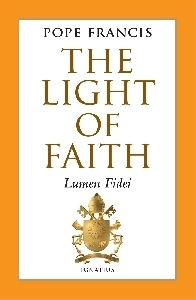
Faith is the means by which man encounters the living God through Jesus Christ in the Holy Spirit. Francis draws on key themes of his predecessor, Pope Benedict XVI, who wrote encyclicals on charity and hope. He intended to complete the set with a reflection on faith, which would also have underscored the Year of Faith that he launched. Benedict's history-making retirement meant he was unable to finish his encyclical. Francis took up the task, adding his own insights, themes, and emphases to the work begun by Benedict XVI.
According to Pope Francis, Light of Faith is a "four hand document". Pope Benedict, Francis notes, "handed it to me, it is a strong document. He did the great amount of work". Thus, although officially Light of Faith (Lumen Fidei) is an encyclical of Pope Francis and reflects his teaching ministry, it is also reflects the work of Pope Emeritus Benedict. This is not only Francis' first encyclical; it is also the first encyclical to have been openly written by two successors of St. Peter.
"There is an urgent need, then, to see once again that faith is a light, for once the flame of faith dies out, all other lights begin to dim. The light of faith is unique, since it is capable of illuminating every aspect of human existence. A light this powerful cannot come from ourselves but from a more primordial source: in a word, it must come from God. Faith is born of an encounter with the living God who calls us and reveals his love, a love which precedes us and upon which we can lean for security and for building our lives." - Pope Francis
Special, Deluxe, Hardcover edition
Pope Francis (Jorge Mario Bergoglio), is the first Latin American to be elected to the chair of Peter. A native of Buenos Aires, Argentina, he was ordained as a priest in 1969. He served as head of the Society of Jesus in Argentina from 1973 to 1979. In 1998 he became the archbishop of Buenos Aires, and in 2001 a cardinal. Following the resignation of his predecessor, Pope Benedict XVI, February 28, 2013, the conclave elected Bergoglio, who chose the papal name Francis in honor of Saint Francis of Assisi. He is the first pope to be a Jesuit and to come from the Americas.
August 18, 2013
Now available: "Worshipping the State: How Liberalism Became Our State Religion"
Available for purchase at www.Ignatius.com:
Worshipping the State: How Liberalism Became Our State Religion
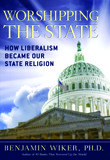
by Benjamin Wiker
Many Christians feel that they are being opposed at every turn by a well-orchestrated political and cultural campaign to de-Christianize every aspect of Western culture. They are right, and it goes even further back than the Obama Administration. Benjamin Wiker argues that it is liberals who seek to establish an official state religion: one of unbelief. He reveals that it was never the intention of the Founders to drive religion out of the public square with the First Amendment, but secular liberals have deliberately misinterpreted the establishment clause to serve their own ends: the de-Christianization of Western civilization.
The liberal strategy is two-pronged: drive religion out of the public square, and then, in religion's place, erect the Church of the State to fill the human need for a higher power to look up to. But what was done can be undone. Outlining a simple, step-by-step strategy for disestablishing the state church of secularism, Wiker shows the full historical sweep of the war to those on the Christian side of the cultural battle--and as a consequence of this far more complete vantage, how to win it.
Praise for Worshipping the State:
"Wiker's book is the most forthright and unblinking analysis yet of the ubiquitous assault on religion in American society. Every believer in religious liberty should read it."
- James Hitchcock, author, History of the Catholic Church
From a June 17, 2013, Catholic World Report interview with Wiker about his book:
CWR: Isn’t the title of your book hyperbolic and simply meant to stir up interest? Can it really be argued that anyone, at least in the United States, really worships the state? Whatever do you mean by that?
Wiker: Well, it’s certainly meant to stir up interest! Do people in the US, especially from the Left, physically get down and bow before, say, the steps of the Supreme Court? No! But do they treat the state as a kind of substitute for God? Yes, very much so. Is there precedent in the history of liberalism for an actual worshipping of the state? Again, yes.
We first have to stand back and look at our current situation within a larger historical framework. Over the last two hundred years, self-consciously secular states have, quite literally, transferred worship from God to humanity itself, or more precisely, to the greatest concentration of human power, the state.
The French Revolution’s Religion of Reason was actually a worship of man himself, and the secular revolutionary state made up its own religion, so that the revolution itself and the revolutionary state became the object of actual religious devotion.
This same kind of movement—rejecting Christianity, only to idolize the secular state—occurred with various other political movements in the 19th and early 20th centuries: nationalism, communism, Fascism, and Nazism are the most obvious examples. For good reason, scholars have called these “political religions.”
Socialism was one more political religion, which quite literally understood itself as transferring the worship from God to humanity itself, or more exactly, to the socialist state that promised to give citizens in this life what Christianity had promised only in the next—a this-worldly utopia. Socialism was, therefore, essentially religious in its original conception, and it became the historical foundation of liberal progressivism in the United States.
So, yes, we are talking about actual worship of the state! But we can also see, even aside from this historical background, that the liberal state has taken upon itself the role of God, even while it busily evicts Christianity from the public square.
Let me offer one important example, President Obama’s HHS mandate, compelling all institutions, including Catholic institutions, to pay for contraception, abortifacients, and sterilization. That’s the liberal state saying, “Thou shalt participate in the liberal sexual revolution.” That’s the state defining good and evil.
The same thing is occurring with the Left’s use of the courts to impose the acceptance of gay marriage, or the state, with abortion and euthanasia, taking upon itself the authority to define what marriage is, what life is, and when death should be dealt.
Do Christians Love Poverty?

Do
Christians Love Poverty? | Fr. James V. Schall, SJ | Catholic World Report
Insisting
that the only thing the poor need is bread consigns them to a world
without signs of transcendence
I.
For some
time, after listening to much of their rhetoric on the topic, the
question has bothered me: Do Christians love poverty as such, as a
positive good? Do they want people to be poor so that they can be
loveable? Somewhere in my memory, I recall a similar question: If we
love our neighbor because we are “commanded” to love him, do we
really love him? Or are we just obeying the commandment? Will the
person we say we love recognize that what is really going on is that
we are gaining points for virtue for ourselves by making it seem like
we love him by law? These are questions asked without guile.
Poverty
is not just a Christian concern, but also a socialist and a liberal
one, though both may have gotten the idea one way or another from
Christians. Are the poor the moral basis that justifies the actions
of the government or the philanthropists? In lieu of God, does
concern for the poor become a substitute for God as the only visible
way to prove that we are not just being selfish? In either case, the
poor and “options” for them are but tools that rationalize
self-centered lives that have no other reason for existing but their
own self-esteem.
In the
beginning, I would like to affirm that, in my opinion, it is not
the purpose of Christianity to make men poor or to keep them that
way, granted that riches or wealth can, if not ordered, be morally
dangerous. They (“all those beautiful things”) can become, as
Augustine reflected, a means to obtain whatever we want. Several
Latin American economists have remarked that the reason evangelical
Christians make such headway in Latin America is because they
perceive the need for discipline, work, virtue, honesty, knowledge,
enterprise, and other aspects of learning to become productive—of
becoming “not poor.”
Catholics,
by contrast, (shades of Max Weber’s famous thesis in Protestantism
and the Spirit of Capitalism), seem, content with the status quo
and with a static distribution or redistribution of existing goods
that pits one group against another. The Catholics are not concerned
with creating more goods, more wealth. In an honorable and effective
way they think in terms of distributing their own, someone else’s,
or the state’s limited store of goods, not of producing more goods,
of increasing the whole of what is available. Though this thesis
about Catholics economically lagging behind was challenged by people
like George O’Brien and Amintore Fanfani, they did so by pointing
to those Catholics, usually German or northern Italian, who did
understand growth and innovation as something that can be learned and
put into practice.
No doubt,
we can also distinguish between loving or helping the poor
persons—real individuals in need here and now—and loving
“poverty” as such, an abstraction. It would seem that our love of
the poor, in some basic sense, ought to include not just our helping
the poor in his immediate needs but mainly inciting his capacity to
help himself.
August 16, 2013
The Purifying Fire of Dividing, Divine Love
A Scriptural Reflection on the Readings for Sunday, August 18, 2013 | Carl E. Olson
Readings:
• Jer 38:4-6, 8-10
• Ps 40:2, 3, 4, 18
• Heb 12:1-4
• Lk 12:49-53
In the summer of 2007, the Congregation for
the Doctrine of the Faith released a document containing “responses
to some questions regarding certain aspects of the doctrine of the
Church.” It carefully re-articulated some important Catholic
teachings about the nature of the Church, meant to help Catholics
avoid various “erroneous interpretations which in turn give rise to
confusion and doubt.”
Predictably, many media outlets
sensationalized the contents of the document and ran headlines such
as “Vatican hits ‘wounded’ Christian churches,” as though the
teaching “that the Church of Christ subsists in the Catholic
Church” is somehow new to the Vatican, the pope, or
Catholicism. Of course, it isn’t. Yet that didn’t keep some
Catholics from expressing their outrage at the supposed “intolerance”
coming from a backwards and “polarizing” Pope Benedict XVI.
One Catholic, in a
letter to the editor of the Detroit Free Press, lamented what
he described as the “believe-what-we-say-or-leave’” mentality
of the Catholic Church. “I hope all of us will start acting more
like Jesus…”, he wrote, “simply passing along love, peace and
goodness to others.”
That letter writer would do well to
read both the document he wrongly criticized and today’s
Gospel reading, which describes Jesus explaining that He has “come
to set the earth on fire, and how I wish it were already blazing!”
This is a reference back to the third chapter of Luke’s Gospel and
John the Baptist’s explanation that the Messiah “will baptize you
with the Holy Spirit and fire” and that He will burn the chaff
“with unquenchable fire” (Lk 3:16-17). Like the prophet Elijah,
who called down fire from heaven to consume his enemies (2 Kgs
1:10-14), the presence of Jesus often caused violence and
disturbance—not because He opposed love and peace, but because the
destruction of evil and sin demanded a violent, active love. Only
through bloodshed and sacrifice will peace be fully established, and
then only at the end of time.
Many theologians and authors have tried
in recent decades to warp the Gospels and remake Jesus into a sort of
mild-mannered self-help guru who never uttered a disturbing word
or made a shocking comment. Yet Jesus stated that He would bring
division, even among families, setting parents against children. This
is painful to consider, but it has often been the case: sometimes the
one who enters the family of God must turn his back on father,
mother, and siblings.
To take up modern terminology, Jesus came to
apply shock therapy to the ailing hearts and souls of those lost in
sin. The fire that He gave—and continues to give through His Church
and the sacraments—is the burning life and the transforming energy
of the Holy Spirit, which consumes what is weak and wanting while
purifying and enlightening the minds of those who follow Him. “As
fire transforms into itself everything it touches,” remarks the
Catechism,
“so the Holy Spirit transforms into the divine life whatever is
subjected to his power” (CCC 1127; cf. 696).
That transformation is ultimately an
all-or-nothing reality; there is, in fact, a
“believe-what-we-say-or-leave” aspect to Catholicism, although it
is far better expressed as “believe-what-He-says-or-leave”. Jesus
causes division and brings unity for one and the same reason:
He is both the scandal that divides and the Savior who unites. The
bloody Cross is the scarlet line that separates and a steady tie that
binds.
As the Letter to the Hebrews states today, the Cross is
shameful to many. But for those who have their eyes fixed on Jesus,
the Cross is the ladder to joy and life. The theologian Fr. Hans Urs
von Balthasar, in reflecting on martyrdom and the cost of
discipleship, once wrote that the “only valid response” to the
death of Christ on the Cross “is to be prepared to die for him, and
even more, to be dead in him.” Through that death comes real peace;
in that death we experience true and abiding love. Yes, indeed, let
us start acting more like Jesus!
(This "Opening the Word" originally appeared in a slightly different form in the August 19, 2007, issue of Our Sunday Visitor newspaper.)
Listen to Joseph Pearce discuss "Moby Dick"
And here is a bit about the ICE edition of the book:
A sea adventure, a study of evil, and a cast of fascinating characters,
including the crazed captain who is obsessed with hunting down the whale
that maimed him — Moby-Dick is all of this and more.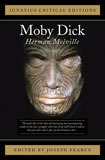
Based on the author's experiences as a sailor, Herman Melville's
probing look into the human heart has been read and analyzed from every
angle, including the most absurd. The tragic tale is looked at afresh in
this Ignatius Critical Edition, which examines the background and other
writings of the author and provides his essay on a work by his literary
friend Nathaniel Hawthorne.
Classic Criticism
"Excerpts from 'Hawthorne and His Mosses'" – Herman Melville
Contemporary Criticism
"Apocalyptic Readings of Moby-Dick: What Ishmael Returns to Tell Us" – Robert Alexander
"'Civilized Hypocrisies and Bland Deceits' in Moby-Dick" – Mitchell Kalpakgian
"Moby-Dick: The Republic at Sea" – Stephen Zelnick
Mary R. Reichardt situates the reader with the introductory essay.
The book is also available in e-book format and there is an accompanying Study Guide.
New: "Mater Eucharistiae" by the Dominican Sisters of Mary, Mother of the Eucharist.
Now available on the Ignatius Press site:
by the Dominican Sisters of Mary, Mother of the Eucharist
Be transported to their Ann Arbor chapel and experience their beautiful and pure renditions of sacred music. The fifteen peaceful and serene songs of this debut release will include original compositions written by the Sisters that reflect their Dominican spirituality, along with a selection of modern and ancient hymns and chants in English and in Latin. Singing both a capella and with the accompaniment of organ, trumpet, and chimes, the Dominican Sisters of Mary, Mother of the Eucharist have created a collection that is reflective of the music in their daily community life.
This album is produced by Blanton Alspaugh, 2013 Grammy Award Winning Classical Producer of Year. And engineered by John Newton, 3x Grammy Award Winner.
The Sisters will also be recognized due to their multiple appearances on "The Oprah Winfrey Show," and the extensive publicity they have received in the US and Canada through outlets such as The New York Times, The Detroit Free Press, The Washington Post, CNN, Fox News and beyond.The Dominican Sisters of Mary, Mother of the Eucharist, founded 16 years ago, also have teaching missions in schools all over the US. They chant the Divine Office throughout the day and their favorite hymns throughout the year, while also composing music of their own. They follow in the thirteenth-century footsteps of St. Dominic, while very much engaging the modern world. Their Motherhouse is in Ann Arbor, MI, and they are in the process of raising funds to construct a new priory in Texas
Track Listing:
1. Holy Mary Mother of God
2. Jesu Dulcis Memoria
3. Te Deum
4. O Gloriosa Virginum
5. Ave Maria To Thee Holy Virgin
6. Quid Retribuam
7. I Am In Thy Hands O Mary
8. Sicut Cervus
9. Stella Splendens
10. Pange Lingua
11. The Annunciation
12. Ave Maris Stella
13. Angelus Ad Virginem
14. Adoro Te
15. Salve Regina
Europe’s Cassandra: An Interview with Gabriele Kuby
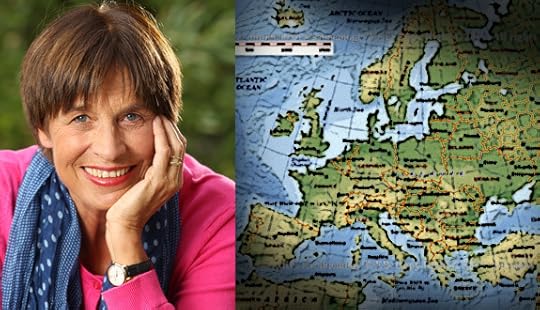
Europe’s Cassandra |
Alvino-Mario Fantini | CWR
German sociologist Gabriele Kuby discusses
conversion, the global sexual revolution, freedom, family, and faith
German sociologist Gabriele Kuby has been warning the public about
threats to society and dangers to the Catholic Faith for years. She
has warned of the excesses of the cultural revolution of 1968,
offered a critique of the ideology of feminism, and warned of the
destructive effects of the sexual revolution. But what makes her
especially qualified to speak about such matters is that she herself
was a revolutionary soixante-huitard before
converting to the Catholic Faith in 1997.
Born
in Konstanz, Germany, in 1944, Kuby studied sociology in Berlin and
completed her Master’s degree in Konstanz under Ralf Dahrendorf in
the late 1960s. For several decades before her conversion, she
dabbled in esoteric material and worked as a translator and
interpreter. Her first book, Mein Weg zu Maria—Von der Kraft
lebendigen Glaubens (My Way to Maria—by the Power of the
Living Faith), published by Bertelsmann Verlag in 1998, is a diary of
her encounter with Christ and her life-changing conversion.
Since
then she has published ten other books about faith and spirituality,
the 1968 cultural revolution, feminism, gender and sexuality, and how
to find hope through a reaffirmation of Christian values.
Kuby is
a frequent lecturer in Germany and around Europe, and has written for
numerous print and on-line publications in Europe, including The
Daily Mail in the U.K., Vatican
Magazin in Germany, and www.kath.net.
She has also been a guest on talk shows aired by German public
service broadcasters ARD and ZDF, as well as global television
network EWTN.
In
2012, Kuby’s latest book, Die globale sexuelle Revolution:
Zerstörung der Freiheit im Namen der Freiheit (The Global
Sexual Revolution: Destruction of Freedom in the Name of
Freedom), was published by Fe-Medienverlag
in 2012. Recently, she spoke with Catholic World Report about
her book, her work, and today’s dangerous challenges to the Faith.
CWR:
What has most influenced your intellectual development?
Gabriele
Kuby: My lifelong search for truth. My father, Erich Kuby, was a
left-wing writer and journalist. That set me on the path of the 1968
student rebellion and eventually led to the study of sociology in
West Berlin. But to me, neither Communism nor feminism, nor the
sexual revolution, was convincing—especially given the gap between
human reality and the ideals proclaimed by these groups. So I soon
moved on.
After a
direct experience of God in 1973, I began to search for God on paths
where you can’t find Him: esoterics and psychology. For twenty
years I worked as a translator in these fields. And I moved through
the ideological currents of our time—which made it very difficult
to walk through the door of the Church and discover the treasures she
offers. But eventually, in 1997, I did. Since then, I have been
writing books on spiritual matters and socio-political issues.
CWR:
Last September, you published The Global Sexual Revolution:
Destruction of Freedom in the Name of Freedom.Why
did you write this book? What has been the response?
Gabriele
Kuby: After my conversion, it became increasingly clear to me
that the deregulation of sexual norms is at the front lines of
today’s cultural war. So, in 2006, I published my first book on the
topic: Gender Revolution: Relativism in Action. This was,
in fact, one of the first books to shed light on a hidden agenda.
As I
continued to watch developments in our society, I felt a need to show
the whole picture. This is what I have tried to do in The Global
Sexual Revolution.
The
book has had three editions within a few months, although the
mainstream media have ignored it. In German we have the expression
totschweigen, which means “silencing something to death.”
But it doesn’t seem to have worked! The book has been published in
Poland and Croatia, and will be published in Hungary and Slovakia
this autumn. And there are ongoing negotiations with publishers in
other countries, too.
On
September 31, 2012, I had the privilege of putting the book into the
hands of Pope Benedict XVI, who then said to me, “Thank God that
you speak and write.” This is a great encouragement!
CWR:
What is the main message of the book?
August 14, 2013
"The Assumption" by Monsignor Ronald Knox

The Assumption | Mgr. Ronald Knox | From Pastoral and Occasional
Sermons | August 15th | Ignatius Insight
A cave Jeremias found there, in which he set down tabernacle and ark and incense-altar,
and stopped up the entrance behind him. There were some that followed; no time
they lost in coming up to mark the spot, but find it they could not.—2
Machabees 2:5-6.
After this, God's heavenly temple was thrown open, and the ark of the covenant
was plain to view, standing in his temple.—Apocalypse 11:19.
The Son of God came to earth to turn our hearts away from earth, Godwards. The
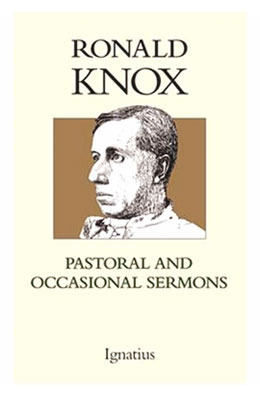
material world in which we live was, by his way of it, something immaterial; it
didn't matter. We were not to be always worrying about our clothes being
shabby, or wondering where our next meal was to come from; the God who fed the
sparrows and clothed the lilies would see to all that. We were not to resent the
injuries done to us by our neighbours; the aggressor was welcome to have a slap
at the other cheek, and when he took away our greatcoat he was to find that we
had left our coat inside it. Life itself, the life we know, was a thing of little
value; it was a cheap bargain, if we lost life here to attaIn the life
hereafter. There was a supernatural world, interpenetrating, at a higher level,
the world of our experience; it has its own laws, the only rule we were to live
by, its own prizes, which alone were worth the winning. All that he tried to
teach us; and we, intent on our own petty squabbles, our sordid struggle for
existence, cold-shouldered him at first, and then silenced his protest with a
cross.
His answer was to rise from the dead; and then, for forty days in the world's
history, that supernatural life which he had preached to us flourished and
functioned under the conditions of earth. A privileged few saw, with mortal
eyes, the comings and goings of immortality, touched with their hands the
impalpable. For forty days; then, as if earth were too frail a vessel to contain
the mystery, the tension was suddenly relaxed. He vanished behind a cloud; the
door of the supernatural shut behind him, and we were left to the contemplation
of this material world, drab and barren as ever.
What was the first thing the apostles saw when they returned from the mount of
the Ascension to the upper room? "Together with Mary"—is it
only an accident that the Mother of God is mentioned just here, by name, and
nowhere else outside the gospels? The Incarnate Word had left us, as silently
as he came to us, leaving no trace behind him of his passage through time. No
trace? At least, in the person of his blessed Mother, he had bequeathed to us a
keepsake, a memory. She was bone of his bone, flesh of his flesh, the new Eve
of the new Adam. That body of hers, still part of the material order of things,
had housed and suckled God. As long as she lived, there would still be a link,
a golden link, between this lower earth and Paradise. As long as she lived; and
even if it was God's will that she, Eve's daughter, should undergo the death
that was Eve's penalty, the penalty she had never incurred, her mortal remains
would still be left with us, an echo from the past, an influence on our lives. We
men, since we are body and soul, do honour even to the lifeless bodies which
have housed the dead; Napoleon rests in the Invalides, Lenin at Moscow. The day
would come when there would be pilgrimages from all over the world to the shrines
of Peter and Paul at Rome, of James at Compostela. Was it not reasonable to
hope that somewhere, at Jerusalem, perhaps, or at Ephesus, we should be
privileged to venerate the mortal remains of her through whom salvation came to
us? Or perhaps at Bethlehem, Bethlehem-Ephrata, this new Ark of God would rest,
as the ark rested of old; "And now, at Ephrata, we have heard tidings of
what we looked for" [1] —the old tag from the Psalms should still
ring true.








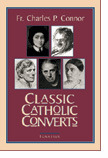

God disposed otherwise. Jewish tradition recorded that when Jerusalem was
destroyed by the armies of Babylon, the prophet Jeremias took the ark of God
away from the city, and buried it in some secret cleft of the rock; it was
never seen again. Never again, except by St John, in his vision on the isle of
Patmos; he saw the ark of God, but in heaven. And so it was with this new Ark
of God, the virgin body that had been his resting-place. When and where she
passed away from this earth, or in what manner, nobody can tell us for certain.
But we know where she is. When Elias was carried up into heaven, the sons of
the prophets at Jericho asked Eliseus if they might go out in search of him;
"it may be", they said, "the spirit of the Lord has carried him
off and left him on some hill-top or in some cleft of the valleys." He
consented grudgingly, and when they returned from their fruitless errand,
greeted them with the words; "Did I not tell you not to send?" [2] So
it is with the body of the blessed Virgin: nowhere in Christendom will you hear
the rumour of it. So many churches, all over the world, eagerly claiming to possess
the relics of this or that saint; who shall tell us whether John the Baptist
sleeps at Amiens, or at Rome? But never of our Lady; and if any of us still
hoped to find that inestimable treasure, the Holy Father has called off the
search, only the other day. We know where her body is; it is in heaven.
Of course, we knew it all along. For myself, I have never doubted the doctrine
of the Assumption since I heard it preached forty-four years ago, in an
Anglican church over at Plymouth. You see, we get it all wrong about body and
soul, simply because our minds are dominated by matter. We think it the most
natural thing in the world that soul and body should be separated after death;
that the body should remain on earth and the soul go to heaven, once it is
purged and assoiled. But it isn't a natural thing at all; soul and body were
made for one another, and the temporary divorce between them is something out
of the way, something extraordinary, occasioned by the Fall. In our blessed
Lady, not born under the star of that defeat, human nature was perfectly
integrated; body and soul belonged to one another, as one day, please God,
yours and mine will.
Long ago, in those fields of Bethlehem, Ruth had gleaned in the footsteps of
her beloved; and he, secretly, had given charge to the reapers to drop handfuls
of corn on purpose, so that she might fill her bosom the sooner. So he, whose
reapers are the angels, would leave for his blessed Mother a special portion of
those graces that were to enrich mankind. The child-bearing which brought, to
us others, redemption from the fault of our first parents should bring, to her,
exemption; the empty tomb, which assures us that our bodies will rise at the
judgment, was for her the earnest of an immediate resurrection; Christ the
first-fruits, and who should glean them, but she? For that, heaven is the richer,
earth the poorer. We can go to Lourdes, and offer adoration in the place where
her feet stood; we cannot press with our lips some precious reliquary
containing the hand that swaddled Christ. In a world so dominated by matter, in
which matter itself seems to carry the seeds of its own destruction, there is
no material object left that can link our destinies with hers.
And yet, is the loss all loss? When the dogma of the Assumption was defined a
friend of mine, a very intelligent Mohammedan, congratulated me on the gesture
which the Holy Father had made; a gesture (said he) against materialism. And I
think he was right. When our Lord took his blessed Mother, soul and body, into
heaven, he did honour to the poor clay of which our human bodies are fashioned.
It was the first step towards reconciling all things in heaven and earth to his
eternal Father, towards making all things new. "The whole of nature",
St Paul tells us, "groans in a common travail all the while. And not only do
we see that, but we ourselves do the same; we ourselves although we have
already begun to reap our spiritual harvest, groan in our hearts, waiting for
that adoption which is the ransoming of our bodies from their slavery."
[3] That transformation of our material bodies to which we look forward one day
has been accomplished—we know it now for certain-in her.
When the Son of God came to earth, he came to turn our hearts away from earth,
Godwards. And as the traveller, shading his eyes while he contemplates some
long vista of scenery, searches about for a human figure that will give him the
scale of those distant surroundings, so we, with dazzled eyes looking Godwards,
identify and welcome one purely human figure close to his throne. One ship has
rounded the headland, one destiny is achieved, one human perfection exists. And
as we watch it, we see God clearer, see God greater, through this masterpiece
of his dealings with mankind.
(A sermon broadcast from Buckfast Abbey, Devon, on the Feast of Our Lady
Assumption, 15 August 1954.)
ENDNOTES:
[1] Psalm 131:6.
[2] 4 Kings 2:16, 18.
[3] Romans 8:22-3.
Related IgnatiusInsight.com Links:
• IgnatiusInsight.com Author Page for Monsignor Ronald Knox
• The Modern Distaste for Religion | Ronald Knox
• The Mind of Knox | David Rooney
• The School of Ronald Knox | An Interview with David Rooney
• The Monsignor and the Don | An Interview with Fr. Milton Walsh
• Monsignor Ronald Knox: Convert, Priest, Apologist | An Interview with Fr. Milton Walsh
• Experience, Reason, and Authority in the Apologetics of Ronald Knox |
Milton Walsh | From Ronald Knox As Apologist
• The Four Marks of the Church | Ronald A. Knox
• Review of The Belief of Catholics | Carl E. Olson
• Ronald Knox, Apologist | Carl E. Olson
• A Lesson Learned From Monsignor Ronald A. Knox | Carl E. Olson
• Converts and Saints | An Interview with Joseph Pearce

Monsignor Ronald Knox (1888-1957) was the son
of the Anglican Bishop of Manchester and it appeared that he, being both
spiritually perceptive and intellectually gifted, would also have a successful
life as an Anglican prelate. But while in school in the early 1900s Knox
began a long struggle between his love for the Church of England and his
growing attraction to the Catholic Church. He converted to Catholicism at the age of twenty-nine, became a priest, and
wrote numerous books on spiritual and literary topics, including
The Belief of Catholics, Captive Flames:
On Selected Saints and Christian Heroes, The Hidden
Stream: The Mysteries of the Christian Faith , Pastoral
and Occasional Sermons , and many more. Visit Knox's IgnatiusInsight.com author page for more information about his life
and work.
Fairest Daughter of the Father: On the Solemnity of the Assumption

Fairest Daughter of the Father: On the Solemnity of the Assumption | Rev. Charles M. Mangan
The Solemnity of the Assumption, celebrated annually on
August 15, presents a golden opportunity to reconsider the person of the
Ever-Virgin Mary and her singular mission in the Church. We often contemplate the relationship
between Mary and her Son; this reflection will focus on the
relationship which Our Lady enjoys with the First Person of the Most
Blessed Trinity.
Mary has been hailed as the "first-born" daughter of the
Father. This reality is evident if one remembers that God--and in a
specific way the Father--has created Mary, just as He has created us.
She is "one of us" because she is fully human. We are children of the
Almighty in a similar vein in which she is His daughter. As we rely on
God for our very existence, so, too, does our Immaculate Mother.
What do the Father and His sinless daughter share?
Venerable Pius IX (1846-1878), in his Apostolic Constitution
Ineffabilis Deus (December 8, 1854) in which he once-and-for-all
defined the truth of Our Lady's Immaculate Conception, wrote: "To her
did the Father will to give His only-begotten Son--the Son Whom, equal to
the Father and begotten by Him, the Father loves from His Heart--and to
give this Son in such a way that He would be the one and the same common
Son of God the Father and of the Blessed Virgin Mary."
The Father gave many overwhelming spiritual riches to Mary
to strengthen her in her inspiring vocation as the Mother of His Son.
Yet, He gave no greater gift than that of the Lord Jesus. Mary, in turn,
imitated the Father in raising Jesus from before infancy to manhood.
Jesus knew well the best of all gifts which His Mother faithfully
imparted: the boundless love of His Beloved Father. Now, as the Son of
Mary, Christ came to experience the love of His Mother which was
patterned after that of His Father.
One may rightly assert that Jesus Christ is the link
between the Father and Mary. We often claim that children receive much
of their identity from their parents. Eye color, physical build and even
disposition are often traced from the child back to its parents. Truly,
the offspring rely on their father and mother for multiple and varied
things. (And, of course, the Messiah willed to come forth from Mary and
be dependent on her and Saint Joseph.) However, the Holy Family of
Nazareth is a different case. Mary and her loving husband discovered
their purpose in the Divine Child. In Jesus, they found their
identity--unto everlasting life!
From her Immaculate Conception to her glorious Assumption
body and soul into Paradise (and even now), Mary never lost her sense of
utter dependence on the Father. Yes, she was chosen to be the Virgin
Mother of Emmanuel. But, she always recalled that she needed God each
moment of her life. When exclaiming the Lord's unparalleled goodness in
the Magnificat (Saint Luke 1:46-55), this humble maiden declared: "The
Mighty One has done great things for me, and holy is His Name" (Verse
49). She did not contend: "Holy is my name." Mary was entirely convinced
that God alone is the source of all we are and all that we have.


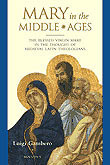







Father Jean Galot, a French theologian and member of the
Society of Jesus and professor emeritus of Christology at the Pontifical
Gregorian University in Rome, recently explored in an article the
intimate bond between the heavenly Father and Mary. We are able to
locate this connection "in the attitude of the Baby Jesus." Father Galot
argues: "In His Infancy, He (Jesus) developed a double fundamental love.
He said 'Abba' to the celestial Father and 'Mamma' to the earthly
Mother. Other babies unite in the affection for father and mother, who
are both human; Jesus associated a divine Father and a human Mother in
the same filial love."
These two cries, "Abba" and "Mamma," came from the very
same Person--Jesus Christ. It is apparent that the Child recognized in
His Mother the care, concern--yes, charity!--which springs from the very
Heart of the Father.
If we grant that God never does anything without a
sufficient and the most excellent of reasons, then we must conclude that
His choice of Mary as the Mother of the Master has certain spiritual
ramifications for those who are the brothers and sisters of Jesus.
1) Mary teaches us how to love the Omnipotent One as we
ought. Again, Mary is fully human. She is of the same "stuff" as we.
Hence, we implore her powerful intercession in learning how to love the
Holy Trinity as she does, our weaknesses notwithstanding.
2) The Father has a plan for our lives that we are to
yield to immediately if we wish to be content. Imagine what Mary would
have missed had she refused the Lord's tender mercy? He summoned her to
become Jesus' Mother; she readily accepted. What we forego when we say
"no" to our Creator! What we gain when we submit to His unfathomable
will!
3) Only in Jesus Christ will we discover our identity and
be filled with authentic happiness. The Redeemer teaches us the truth
about Himself, His Father, the Paraclete, His Mother, and ourselves. He
waits to form us in His Sacred Word. He will never compel us to consent
to his desires, but how He wants us to! Mary saw in Christ the splendor
of truth. Although she suffered intensely, especially on Calvary, her
pure soul was steeped in joy because she courageously adhered to the
designs of the Lord, no matter how challenging. The Holy Spirit granted
her an abiding tranquillity which is indescribable.
The same Father Who sent His Son to Mary through the power
of the Consoler invites us, as He did Mary, to find in Jesus the answer
to all our questions and the balm to all the illnesses of our souls. We
can seek to imitate in some way, with the Holy Spirit's assistance,
Mary's sublime love of the Father. Our wholehearted acceptance of His
love and compassion means that we will flourish spiritually in our day
as the Mother of Christ did--and continues, now assumed into Heaven--in
hers.
This article originally appeared in a slightly different form in the July/August
1999 issue of Catholic Faith magazine.
Related IgnatiusInsight.com Articles and Excerpts:
• The Blessed Virgin in the History of
Christianity | John A. Hardon, S.J.
• "Hail, Full of Grace": Mary, the Mother of Believers |
Joseph Cardinal Ratzinger
• Mary in Feminist Theology: Mother of God or Domesticated Goddess? |
Fr. Manfred Hauke
• Excerpts from The Rosary: Chain of Hope | Fr.
Benedict Groeschel, C.F.R.
• The Past Her Prelude: Marian Imagery in the Old
Testament | Sandra Miesel
• Immaculate
Mary, Matchless in Grace | John Saward
• The Medieval
Mary | The Introduction to Mary in the Middle Ages | by Luigi Gambero
• Misgivings About
Mary | Dr. James Hitchcock
• Born of the Virgin Mary | Paul Claudel
• Assumed Into Mother's
Arms | Carl E. Olson
• The Disciple
Contemplates the Mother | Erasmo Leiva-Merikakis
Monsignor Charles M. Mangan is a priest of the
Diocese of Sioux Falls (South Dakota). He was ordained to the Priesthood
in 1989. He currently works in the Vatican Congregation for Institutes
of Consecrated Life and Societies of Apostolic Life. Access more of his
articles online here.
New: "7 Secrets of Confession" by Vinny Flynn
Now available from Ignatius Press:
7 Secrets of Confession
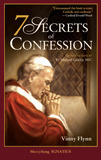
by Vinny Flynn
Flynn, author of the best-seller, 7 Secrets of the Eucharist
(200,000 copies sold), presents a similar approach to the Sacrament of
Confession in this new book that reveals 7 key "secrets" or hidden
truths about the great spiritual beauty, power and depth of Confession.
The understanding that many Catholics have of the Sacrament of
Confession is so limited and narrow in its focus that it keeps them from
discovering the real beauty and value of this Sacrament -beauty and
value that even a young child can understand if it's presented properly.
For too many Catholics, Confession is just a means to an end: cleaning
us up from sin so we can receive Communion. But, as Pope Francis tells
us, Confession is much more than "going to the dry cleaner." It's "an
encounter with Jesus, who waits for us as we are."
In his years of speaking all over North America, Flynn saw that many
Catholics have this limited appreciation of Confession, and the urgent
need for clear teaching about this great Sacrament. If you have not yet
experienced Confession as a wonderful, personal encounter with Christ;
if you do not yet look forward to going to Confession with the same
eagerness and expectation with which you receive Holy Communion, this
book is for you. It will be a whole new way of going to Confession,
inviting you to begin an exciting personal journey to healing and
holiness. It may change your life.
Vinny Flynn is a well-known Catholic author, speaker,
singer and musician who speaks and sings all over North America. His
other popular books include 7 Secrets of the Eucharist and 21 Ways to Worship.
Praise for 7 Secrets of Confession:
"Vinny Flynn shows why confession of our sins is integral to
evangelizing. Only when we recognize our sinfulness do we begin to
appreciate the infinite goodness of the Lord. Only when we have
experienced God's forgiveness are we free to take up the mission of the
Church. 7 Secrets of Confession gets to the heart of discipleship."
- Cardinal Francis George, O.M.I., Archbishop of Chicago
"Confession has been called the Sacrament of the New Evangelization. It
is the sacred encounter with Christ where we experience God's mercy and
forgiveness. Vinny Flynn helps make even more accessible this
beautiful sacrament of healing. Those who read this short but
insightful book should be able to approach the Sacrament of Confession
with greater love, fervor and gratitude and come away convinced that
they are not only forgiven but truly healed and liberated. 7 Secrets of Confession
is a helpful tool in the ongoing challenge of the New Evangelization. I
am happy to recommend it to every Catholic and confessor."
- Cardinal Donald Wuerl, Archbishop of Washington D.C.
"Vinny Flynn's ‘7 Secrets' are like seven explosions that blow away the
obstacles keeping us from the Sacrament of Mercy. If you've ever dragged
your feet on the way to confession, gotten discouraged about confessing
the same sins over and over, or wondered how your confessions could be
more fruitful, then you'll love this book. It turns what many see as a
tiresome obligation into a precious, longed-for encounter with the
Lord."
- Fr. Michael Gaitley, MIC, Author, 33 Days to Morning Glory
"Simple and clear, yet profound, this is a book which should be found in
every Catholic home and on the book shelf of every confessor and
director of souls."
- Fr. Peter Damian Fehlner, S.T.D., Author, St. Maximilian Kolbe: Martyr of Charity
"I greatly admire the writings of Vinny Flynn. You are going to love his latest gem, 7 Secrets of Confession!
In an age in which the Sacrament of Reconciliation is often
misunderstood and even ignored, this book offers invaluable insights. I
will definitely be recommending it to the many people I meet as I travel
and speak."
- Fr. Donald Calloway, MIC, Author, Under the Mantle
"Vinny Flynn is my favorite Catholic writer, bar none. In 7 Secrets of Confession,
he addresses the most misunderstood sacrament of the Church, and his
readers will never look at confession the same way again. Taking the
intimidation factor out of this great sacrament, he brings it into new
relevancy for today's Catholics and helps us realize that confession is
not something we ‘have to do;' it's something we ‘get to do.'"
- Felix Carroll, Author, Lost, Loved, Found: 17 Divine Mercy Conversions
Carl E. Olson's Blog
- Carl E. Olson's profile
- 20 followers


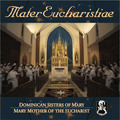 Mater Eucharistiae
Mater Eucharistiae 
